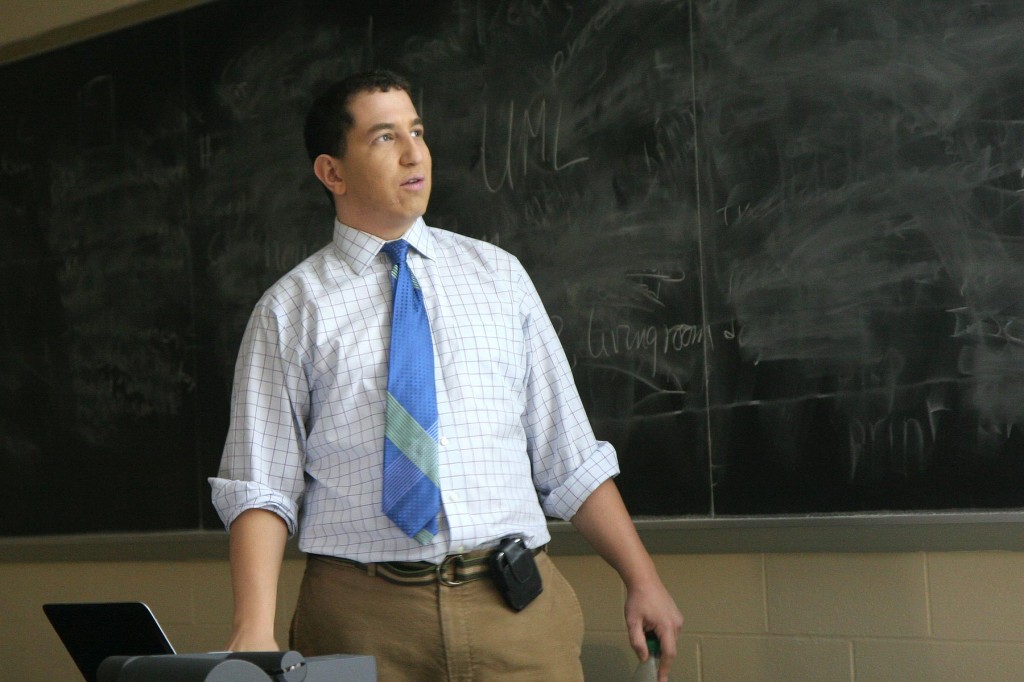
Alexander Heffner, a journalist, political commentator and student engagement activist, spoke Monday night at the first of three lectures to be held this October by the Harpur Dean’s office and political science department.
Heffner addressed the lack of student involvement he perceives in the upcoming presidential election as compared with the 2008 elections. He cited a Sept. 9 poll in the Charlotte Observer that found young voters to be less excited than any other age group.
“Young people tweet, but they still don’t vote,” Heffner said, asking the audience to consider how social media can be turned into something that will get students involved in politics and social justice movements. “I think there’s a case to be made for a conversation about electronic voting.”
Heffner also discussed the laws enacted in some states that require voters to show photo identification at the polls. According to Heffner, these laws could hinder voting for students going to school away from home.
“It’s not easy to get all your credentials together,” Heffner said. “What this is doing to young voters is putting a secondary onus on them.”
Peter Kenigsberg, a junior double-majoring in English and philosophy, politics and law, said he believes the voter identification laws are necessary.
“All U.S. citizens should have a form of identification on them,” Kenigsberg said. “If you are of legal voting age and do not have proper identification on you, you are not doing your job as a U.S. citizen. If you cannot do something as simple as that, chances are slim that you are an informed voter.”
Other students commented during the question-and-answer session following Heffner’s talk, debating the fairness of the identification laws. One student referred to the laws as a “slap in the face to constitutional rights.”
Heffner currently works on a freelancing project for PBS called “Need to Know.” He founded and edited SCOOP08 and SCOOP44, the first online national student newspapers covering the 2008 presidential election and the Obama administration.
About 40 students attended Monday’s talk, entitled “Youth, Political Engagement and the 2012 Elections.”
Jonathan Krasno, an associate professor in the political science department, helped to organize the event and introduced Heffner.
“The purpose is to try [to] increase interest in and knowledge of the political process with a variety of perspectives on the upcoming election,” Krasno said in an email.
Krasno said he has actually seen an increase in political action on campus this year, despite the national media coverage suggesting that interest among young voters is down from the previous presidential election.
“I’m a little heartened to see more politics on campus this year than in 2008 (believe it or not) or 2004,” he wrote in an email. “NYS has suffered for its strong allegiance to the Dems (like Texas has for its allegiance to the GOP) in that candidates are free to ignore us.”
Krasno pointed to several initiatives on campus, including a voter registration contest between residential communities and Off Campus College (OCC) to increase the number of Binghamton University students registered to vote locally.
“I would be surprised and disappointed if BU turnout was not up from 2008, no matter what happens elsewhere,” Krasno said.


